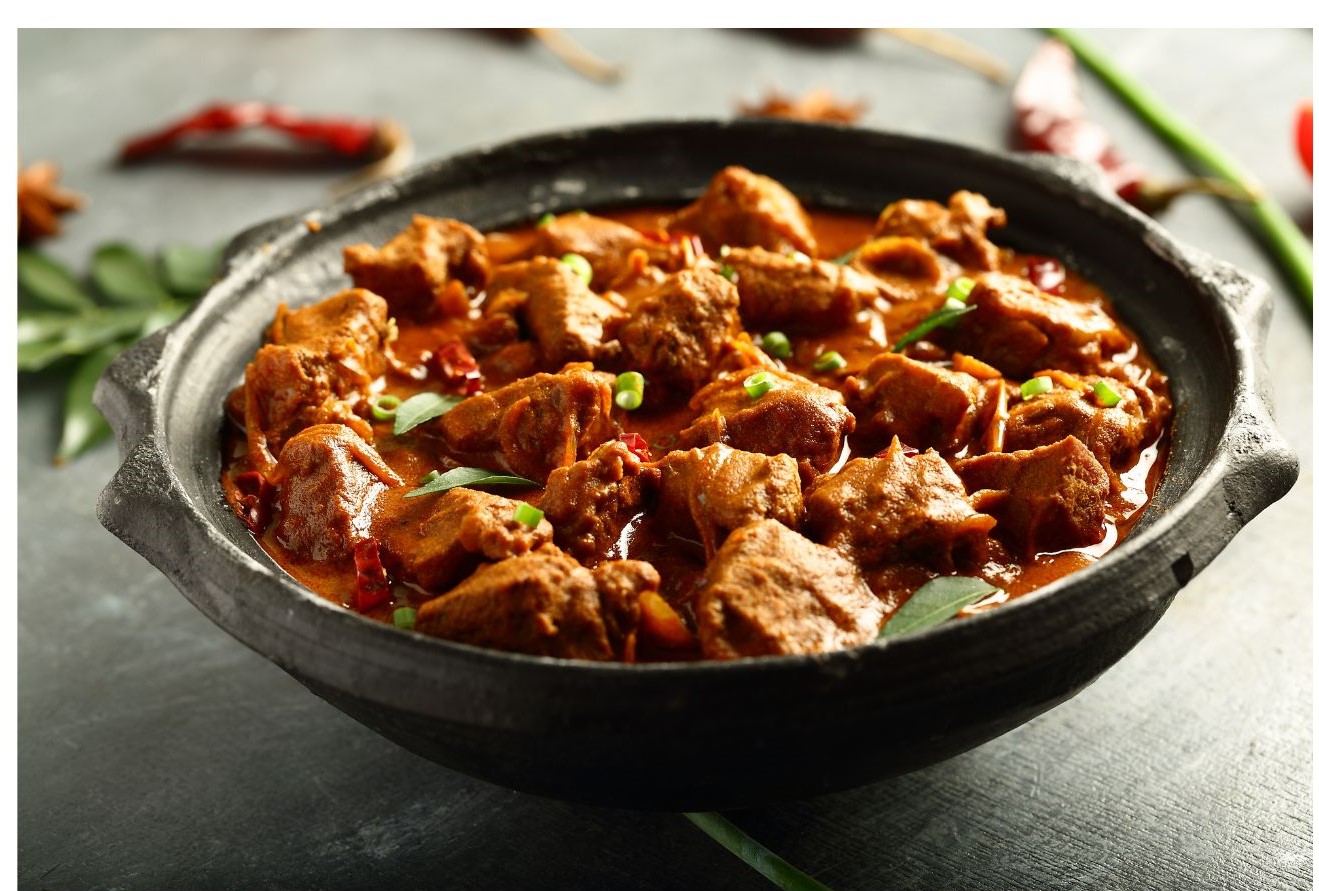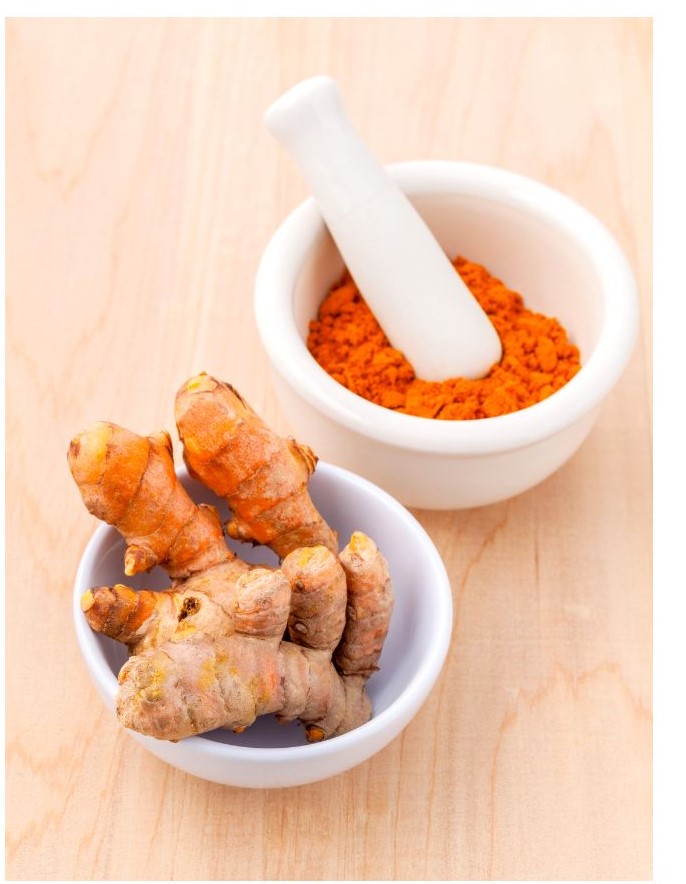Turmeric & Curcumin: How to Fight Inflammation Naturally
Inflammation is a buzzword in the wellness community, but for good reason. Even though it’s a natural part of the body’s defense mechanism, for many people it becomes a kind of slow burn, simmering beneath the surface over time. This type of chronic inflammation can lead to severe health issues such as arthritis, heart disease, and even cancer.
The good news is that we can often combat inflammation naturally with turmeric, a golden spice revered for its healing properties.
Turmeric and Curcumin
As a brief background, turmeric is a bright yellow root belonging to the ginger family. It has been used for thousands of years in traditional medicine, particularly Ayurveda and Chinese medicine, for its potent anti-inflammatory and antioxidant properties.
The primary active compound in turmeric is curcumin, which is responsible for most of its health benefits.
So, Why Turmeric for Inflammation?
The biologically active component of turmeric, curcumin, works at the molecular level to fight inflammation. It blocks a molecule called NF-kB, which plays a significant role in chronic inflammation (1). By inhibiting this molecule, curcumin can help reduce inflammation and provide relief from symptoms associated with inflammatory conditions.
It also binds to pro-inflammatory cytokines like IL-6, and reduces inflammatory biomarkers (2).
Turmeric has been used for centuries as a treatment for various ailments, from digestive issues to skin conditions. Today, scientific research is validating many of these traditional uses, making turmeric a popular supplement to support everything from cardiovascular & brain health to hormones & gut function (3).
How to Get More Turmeric into Your Diet
Turmeric Supplements
In the Western world, the most common way to add more turmeric to your routine is to take it in a supplement.These are readily available in capsule form, as well as in powdered or liquid extract. Curcumin supplements can provide a more concentrated dose of the active compound, making them an effective option for managing inflammation.
However, it’s important to note that some studies have found that curcumin is not well-absorbed by the body on its own. More on this below.
Turmeric in Cooking

In traditional medicine practices, turmeric was typically consumed through food and drinks. Adding turmeric to your meals is an easy and delicious way to incorporate it into your diet. You can use fresh or ground turmeric in recipes such as curries, soups, and smoothies. It also pairs well with other spices like ginger, garlic, and cinnamon.
When cooking with turmeric, it’s important to know that heat can degrade the active compounds. To preserve its benefits, consider adding turmeric towards the end of cooking or using it in raw dishes like dressings or dips.
Turmeric Beverages
Turmeric is a popular ingredient in many traditional drinks from around the world. Golden milk, a warm beverage made with turmeric, milk (or plant-based milk), and other spices such as cinnamon and ginger, has gained popularity for its anti-inflammatory properties. You can also add turmeric to your morning smoothie for a boost of nutrients.
Try these recipes:
Topical Use
Aside from ingesting turmeric, it can also be applied topically for skin and beauty benefits. Turmeric has anti-inflammatory and antioxidant properties, making it useful in treating skin conditions like acne, eczema, and psoriasis (4). It can also help brighten the complexion and reduce signs of aging.
To use turmeric topically, you can make a paste with water or honey and apply it to your skin. Leave on for 10-15 minutes before rinsing off. You can also find skincare products containing turmeric as an active ingredient.
Try these DIY therapeutic face masks
Choosing the Right Turmeric Supplement
Importance of Bioavailability
When choosing a turmeric supplement, bioavailability is key. Curcumin is not easily absorbed by the body, so look for supplements that include piperine (black pepper extract) or are formulated for enhanced absorption (3). When adding turmeric to a meal, studies show it’s better absorbed with a source of fat, like olive oil, butter, or ghee (5).
Dosage and Administration

Most turmeric supplements contain a daily dose of 500-2,000 mg of curcuminoids, but there isn’t a standard dosage for every person.
How Much Turmeric Should You Consume?
How much turmeric or curcumin to take depends on you, your health issues, supplement availability, and other personal factors. Start with a lower dose and gradually increase it as needed.
It’s safe to consume between 2.5 to 5 grams of turmeric per day, which is equal to ½ teaspoon or 1 teaspoon, respectively. Up to 8 grams has been reported safe (6), but I’d caution before increasing your intake this high as it may cause side effects like gastrointestinal discomfort.
Related: 7 Wellness Tonics for Skin Health, Digestion, & More
Precautions
While turmeric is generally considered safe for consumption, it’s always important to consult with a healthcare practitioner who is familiar with supplements like turmeric, especially if you have any medical conditions or are taking medication. Turmeric can interact with certain medications, such as blood thinners and diabetes drugs.
Additionally, consuming too much turmeric may cause gastrointestinal discomfort and could potentially interfere with blood clotting at high dosages.
Fight Inflammation at the Source
Today, research shows that many causes of deteriorating health can be connected back to inflammation or irritation triggered by an unhealthy digestive system. This not only leads to illness, but uncomfortable symptoms like belly bloat and digestive discomfort.
Belly Fix is doctor-formulated with coconut medium chain triglycerides which support satiety, helping fight cravings and promote the beneficial gut flora. Plus, a mighty digestive blend of bioavailable turmeric and ginger to modulate inflammation, and natural probiotics for healthy bacterial balance.
Belly Fix takes optimal digestive support one step further with spirulina and superfood greens, including alfalfa and barley grass, providing micronutrients and chlorophyll to support the body’s natural detoxification pathways. Finally, collagen peptides support continued gut health by providing targeted amino acids for the health of tight junction proteins within the lining of the gut.
To learn more about this digestive defender and inflammation fighter, check out Belly Fix!
Key Takeaways
Turmeric is more than just a spice—it’s a powerful anti-inflammatory agent that can transform your health. By incorporating it into your diet and choosing the right supplements, you can manage inflammation naturally and effectively.
Here are some key takeaways about the benefits of turmeric:
- Turmeric is rich in curcumin, a compound with powerful anti-inflammatory properties.
- You can get more turmeric by incorporating it fresh or ground in meals, or by taking a turmeric (or curcumin) supplement.
- Turmeric has been shown to have positive effects on overall health, including boosting immunity and promoting healthy skin.
- It’s important to choose high-quality sources of turmeric to ensure maximum absorption and effectiveness.
Start incorporating turmeric into your daily routine today to put out the fire of inflammation and boost your overall wellness. Your body will thank you!
